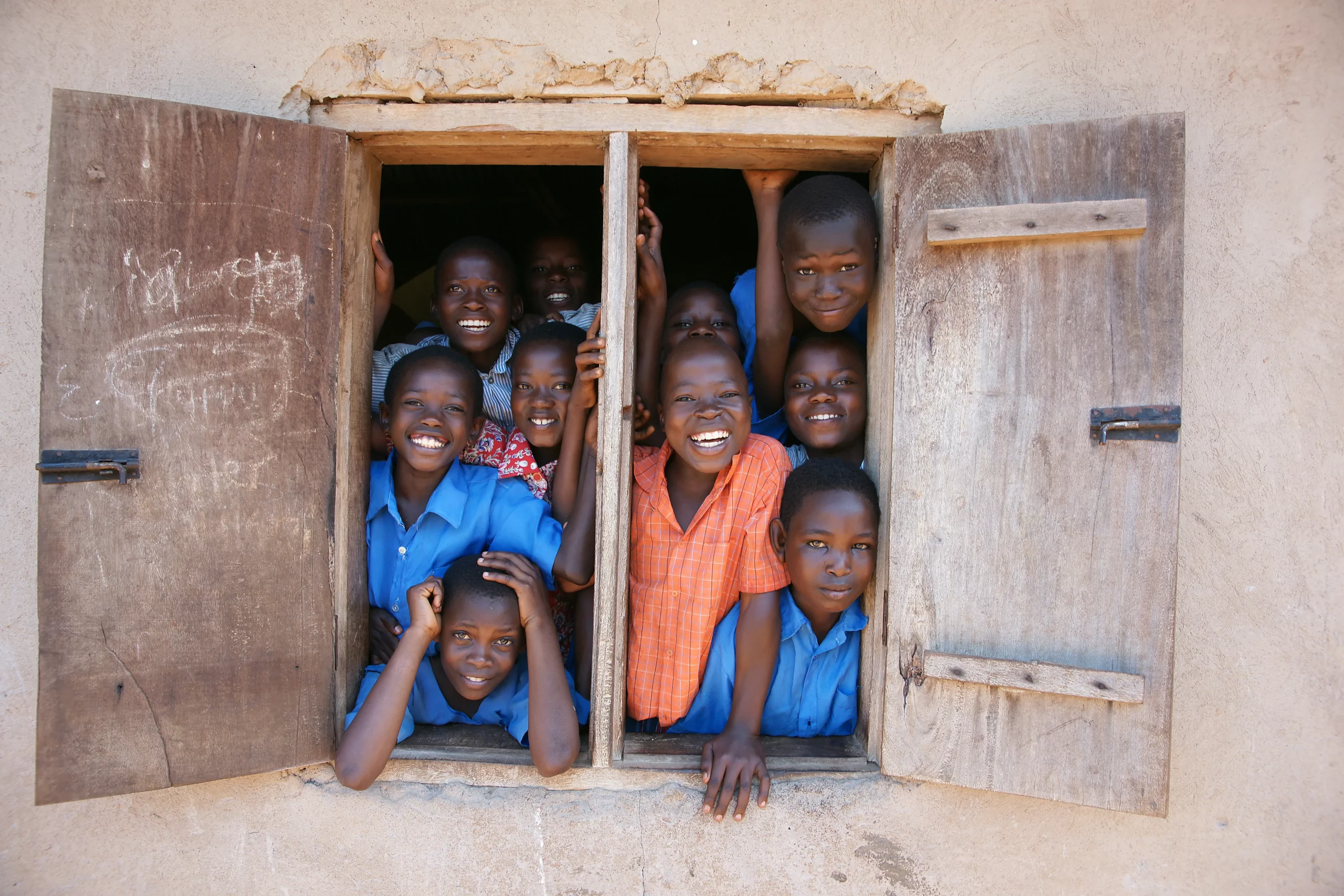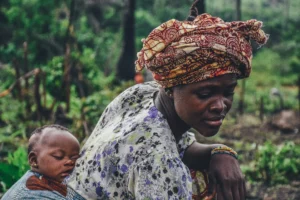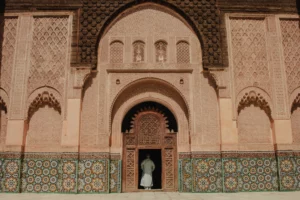
Is the Global Water Crisis the Next Pandemic?
Dive into the heart of the global water crisis—where climate change meets geopolitical strife. Discover cutting-edge solutions and international efforts aimed at securing water for all.

The construction of African territories, deeply rooted in a complex colonial legacy, continues to shape the continent’s geopolitical landscape today. European colonization in the 19th century saw the arbitrary division of Africa, disregarding ethnic and cultural boundaries. This historical segmentation has had lasting effects on the continent, laying the foundation for numerous conflicts and challenges in governance.
European Colonization: European powers colonized much of Africa in the 19th century, exploiting its resources and labor for their benefit.
Decolonization: The period between 1945 and 1960 marked significant strides towards autonomy and independence for many African countries, signaling the end of direct colonial rule.
Impact of Colonial Rule: The boundaries drawn during this period divided ethnic groups, seeding future conflicts and complicating governance in newly independent states.
For more on the complexities of African geopolitics, visit African Geopolitics.
Following independence, African nations faced the monumental task of nation-building amidst a backdrop of internal and external pressures. The Cold War era further complicated these challenges, with superpowers exerting influence over the political direction of these nascent states.
Civil Wars and Internal Conflicts: Many countries were plagued by civil wars and internal strife, often fueled by the ethnic divisions and power vacuums left in the wake of colonialism.
Neo-Colonialism: The influence of former colonial powers remained significant, with economic and political neo-colonialism affecting the sovereignty and development of African states.
In today’s geopolitical climate, African countries continue to navigate the legacies of their colonial past while facing contemporary challenges. The construction of African territories now involves addressing the scars of history to forge a path towards stability and development.
The arbitrary borders drawn by colonial powers have led to enduring disputes and conflicts within and between nations. Efforts to address these challenges are complicated by the diverse and sometimes competing interests of African states.
Separatist Movements: Some regions continue to challenge the colonial-era boundaries, seeking autonomy or redrawing of borders to better reflect ethnic and cultural identities.
Regional Cooperation: Despite these challenges, there are concerted efforts towards regional integration and cooperation, as seen in the African Union’s initiatives.
For insights into the challenges of development in Africa, explore The Challenges of Development in the African Continent.
Globalization has offered opportunities for economic growth and integration into the global economy. However, its benefits have been uneven, often exacerbating existing inequalities and leaving some countries behind.
Economic Growth vs. Inequality: While some nations have seen significant economic advancements, others struggle with poverty, underdevelopment, and the adverse effects of globalization.
Adapting to Globalization: African states are finding ways to leverage globalization, focusing on sustainable development, innovation, and regional partnerships.
As we look to the future, the construction of African territories will undoubtedly play a crucial role in shaping the continent’s destiny. Overcoming the colonial legacy, addressing contemporary challenges, and leveraging opportunities for regional and global integration will be key to building a stable, prosperous Africa. This journey is complex, fraught with challenges, but also filled with potential for transformative change.
Understanding the historical context is crucial for addressing current challenges.
Cooperation and regional integration offer paths towards stability and development.
Adapting to globalization while safeguarding cultural and political sovereignty is essential for future progress.
For further exploration of water-related challenges in Africa, visit Water Crisis in Africa.
The journey from colonial rule to independent governance has been tumultuous for African states. Post-colonial transitions have been marked by efforts to redefine national identities and territorial boundaries within a global context increasingly defined by economic interdependence and digital connectivity.
In the wake of colonialism, African nations embarked on a quest to forge cohesive national identities from diverse ethnic and cultural mosaics. This process has been fraught with challenges, as the colonial legacy left behind a fragmented political landscape.
Nation-Building Efforts: African leaders have grappled with the task of building unified states that transcend ethnic and regional divisions. The success of these efforts varies widely across the continent, with some countries making significant strides towards unity, while others remain ensnared in ethnic conflicts.
Ethnic Policies and Governance: Governments have adopted different strategies to manage ethnic diversity, ranging from inclusive policies that promote multiculturalism to more divisive approaches that have sometimes exacerbated tensions.
Economic development in Africa is inextricably linked to the construction and management of its territories. The continent’s vast natural resources and burgeoning population present both opportunities and challenges for sustainable development.
The visualization above showcases the relationship between GDP growth and investment in construction across five key African countries: Nigeria, South Africa, Egypt, Algeria, and Morocco. It highlights how economic growth, indicated by GDP growth rates, correlates with investments in construction as a percentage of GDP. This data underscores the significant impact of economic development on the construction and further development of African territories.
Africa’s wealth in natural resources has historically attracted foreign exploitation rather than fostering local economic empowerment. Today, there is a growing emphasis on leveraging these resources for the continent’s development.
Resource Management: Effective management of natural resources is crucial for ensuring that economic benefits are widely distributed among African populations. This involves addressing issues of transparency, governance, and environmental sustainability.
Investment in Infrastructure: Infrastructure development is key to unlocking the economic potential of African territories. Initiatives to improve transportation, energy, and digital infrastructure are critical for regional integration and global competitiveness.
Agriculture remains a cornerstone of many African economies, offering significant potential for development. Meanwhile, the industrial sector presents opportunities for diversification and job creation.
Agricultural Innovation: Embracing technological innovation and sustainable farming practices can increase productivity and resilience in the face of climate change.
Industrialization Strategies: Developing a robust industrial base requires policies that encourage investment, skills development, and access to markets.
As African nations continue to navigate the post-colonial landscape, the construction of territories will play a pivotal role in shaping the continent’s future. Efforts towards economic development, national cohesion, and global integration are essential for realizing the promise of a prosperous and stable Africa. Addressing the legacy of colonialism, while seizing the opportunities presented by a rapidly changing world, will require innovative approaches to governance, development, and international cooperation.
Embracing Technological Advancements: Leveraging technology for economic development and governance can help overcome some of the structural challenges facing African territories.
Strengthening Regional and Global Partnerships: Collaborative efforts are key to addressing shared challenges and harnessing the collective potential of African nations.
Fostering Peace and Stability: Addressing the root causes of conflict and building inclusive societies are prerequisites for sustainable development.
Innovation is the driving force behind modernizing economies, improving governance, and solving complex societal challenges. African territories are increasingly embracing innovation to leapfrog developmental hurdles.
Digital Transformation: The rapid adoption of digital technologies across Africa is transforming sectors from agriculture to education, offering new avenues for economic growth and societal advancement.
Renewable Energy Initiatives: Harnessing renewable energy resources is crucial for sustainable development. Solar, wind, and hydroelectric power projects are expanding access to clean energy across the continent.
Education is at the heart of empowering individuals and communities, driving economic development, and fostering innovation. African countries are investing in education to unlock the potential of their youth and build a skilled workforce for the future.
Challenges: Despite progress, access to quality education remains uneven, with disparities exacerbated by gender, geography, and socio-economic status.
Strategies for Improvement:
- Increasing investment in educational infrastructure and resources.
- Implementing policies to ensure inclusive education for all, including girls and marginalized communities.
- Leveraging technology to expand access to learning opportunities.
In an interconnected world, international collaboration is essential for addressing global challenges and achieving sustainable development. African territories are engaging in partnerships to share knowledge, mobilize resources, and advocate for their interests on the global stage.
Economic Development: Partnering with international organizations and other countries to attract investment, improve trade, and support entrepreneurship.
Climate Action: Collaborating on initiatives to mitigate climate change impacts and promote environmental sustainability.
Peace and Security: Working with global and regional actors to address conflicts, enhance security, and foster peace building efforts.
| Area of Focus | Key Points |
| Innovation | Embracing digital transformation and renewable energy for sustainable development. |
| Education | Investing in education to empower the youth and build a skilled workforce. |
| International Collaboration | Engaging in partnerships for economic development, climate action, and peace and security. |
The construction of African territories is an ongoing journey marked by challenges and opportunities. By leveraging innovation, prioritizing education, and strengthening international collaboration, African nations can build resilient economies, cohesive societies, and a sustainable future. The path forward requires commitment, creativity, and cooperation, both within the continent and with global partners.
The future of African territories is bright, with untapped potential and a rising generation ready to lead the way.
Continued focus on innovation, education, and collaboration will be key to overcoming historical legacies and achieving shared prosperity.

Dive into the heart of the global water crisis—where climate change meets geopolitical strife. Discover cutting-edge solutions and international efforts aimed at securing water for all.

Delve into the complexities of African geopolitics in 2024, where corruption, global influences, and regional conflicts dictate the path to stability and prosperity.

Dive into African Development in 2024, focusing on pivotal actions for overcoming economic, social, and environmental challenges for a thriving future.

Morocco, a North African country, has been striving to strengthen its international position through development.